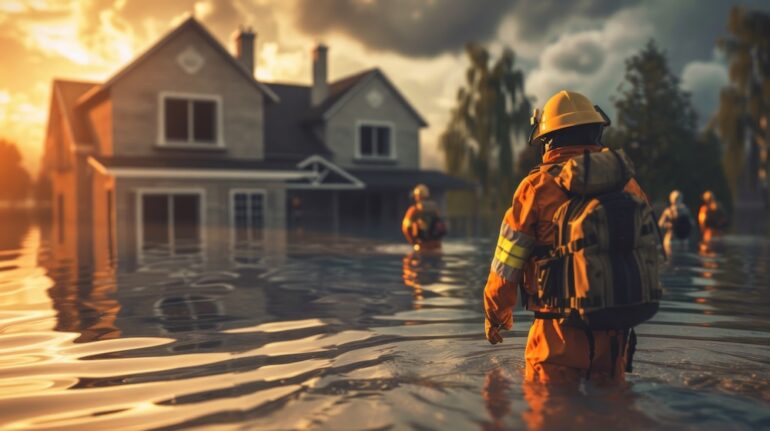With almost every impending disaster, from hurricanes to wildfires, some people in the targeted zone refuse or cannot follow an evacuation notice. Why do some residents decide to stay, and are there ways to persuade or help them evacuate in an emergency?
Reasons people don’t evacuate
When a powerful hurricane draws a bead on populated coastlines, state and federal officials issue voluntary evacuation notices—or mandatory ones with intense storms.
Yet some people hold out and batten down the hatches at home. The Federal Emergency Management Agency (FEMA) conducted research to determine why. Here are some of the reasons the agency found:
- Older adults may be physically encumbered and believe they lack the agility to handle the exertion of moving out. They may also feel attached to treasured possessions and cling to them.
- Men sometimes minimize the risk in their minds and believe they can handle the onslaught. The study found that women are likelier to take evacuation notices seriously and will leave, bringing family and pets.
- Expense becomes a barrier to the economically disadvantaged, often due to a lack of transportation for themselves, their families, and their goods.
- Previous declarations that have turned out to be inaccurate may convey a “cry wolf” perception, leading residents to doubt the necessity of evacuating.
Solutions
As seen by the catastrophic loss of life and property caused by previous wildfires and hurricanes, when officials issue a call for evacuation, people are wise to act.
Some solutions:
- If you live in an area prone to hurricanes, flooding, or wildfires, you should already have an emergency evacuation plan in place, and your family should understand how to follow it. Create and prepack essential supplies to “bug out” on short notice.
- At the first sign that a fierce storm is approaching, move treasured keepsakes and valuables to safe and secure locked areas. Digital files are a good backup for treasured documents and photos.
- Make plans for evacuating loved ones who are elderly or otherwise impaired.
- Include pets in your evacuation plan. Evacuation shelters often have accommodations for pets, and many hotels are now pet-friendly.
- If you or your loved ones don’t have your own transportation, state and local authorities sometimes offer buses to take people to safety.
As for the “tough it out” crowd, you are better safe than sorry. Just because previous evacuations were in error doesn’t mean the next one will be. Property can be replaced, but you cannot.
Related – How to Apply for FEMA Aid After a Disaster


